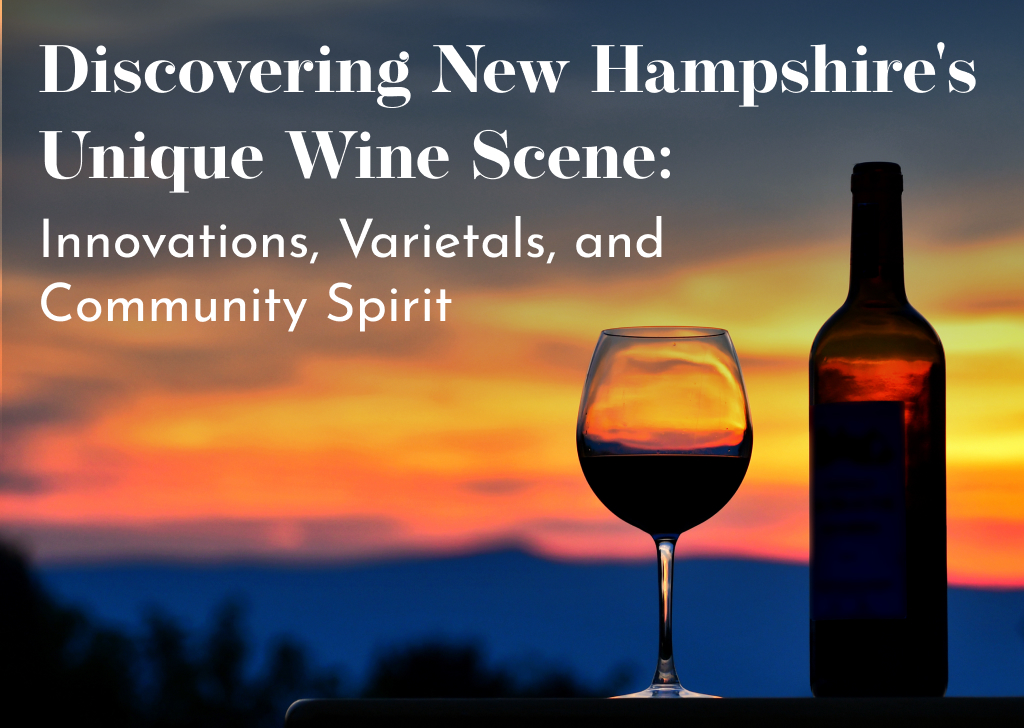New Hampshire’s burgeoning wine industry carves a niche for itself, defined by its resilience, inventiveness, and the intimate bond shared by its community of winemakers and enthusiasts. The Granite State, with its rugged landscapes and challenging climate, might not be the first place that comes to mind when one thinks of wine. However, these elements contribute to the uniqueness and allure of New Hampshire wines, setting them apart in a crowded viticultural landscape.
Climate Challenges and Innovative Responses
Recognizing how the state’s climate influences viticulture is central to understanding the distinctiveness of New Hampshire’s wine offerings. The cold, often unpredictable weather patterns and shorter growing seasons could easily be seen as deterrents to grape cultivation. Yet, they have instead spurred local vintners to innovate and adapt. By embracing cold-hardy grape varieties such as La Crescent for whites and Marquette for reds, New Hampshire winemakers craft wines that survive and thrive under these conditions. These varieties bring unique flavor profiles—tart, bold, and complex—that are hard to replicate in milder climates, offering wine lovers a taste of New Hampshire’s resilience and adaptability.
The Role of Geography in Winemaking
New Hampshire’s topographical diversity introduces a rich tapestry of microclimates and soil types, from its serene lakesides to the rolling hills and rocky terrains. This geographical variation allows for a wide range of wine styles, mirroring the state’s natural diversity. The influence of the local terroir can be tasted in the crispness of a white wine that hints at the cool breezes of a New Hampshire autumn or in the depth of a red wine that seems to carry the ruggedness of the state’s landscapes. This geographical diversity enriches the state’s viticulture and makes wine touring in New Hampshire an adventure of discovery, as each vineyard offers its unique slice of the state’s natural beauty.
Innovation at the Heart of the Craft
The spirit of innovation is perhaps the most striking feature of New Hampshire’s wine scene. Winemakers, often working on a smaller scale than those in traditional wine regions, embrace the freedom to experiment with grape varieties and winemaking techniques. This includes introducing non-traditional ingredients that push the boundaries of conventional winemaking. One notable example of this innovative spirit is Flag Hill Winery’s Cayuga White, a white wine that beautifully captures the essence of New Hampshire’s terroir. Known for its bright acidity and fruity notes, Cayuga White is made from grapes that thrive in New Hampshire’s cool climate, showcasing the adaptability and creativity of local vintners.
Community and Collaboration
The essence of New Hampshire’s wine industry is also deeply rooted in its sense of community. Unlike larger wine-producing regions, where competition might overshadow collaboration, New Hampshire’s wineries often operate more like a close-knit family. This communal spirit fosters an environment where knowledge, resources, and passion for winemaking are shared openly, benefiting not just the individual wineries but elevating the entire industry. Visitors to New Hampshire’s vineyards can feel this sense of community firsthand, often having the opportunity to meet the winemakers themselves, learn about the process from grape to glass, and enjoy a level of hospitality that is as warm and inviting as the wines are rich and diverse.
New Hampshire’s wine culture is also deeply intertwined with the state’s rich history and forward-looking commitment to sustainability. Local wineries employ practices such as integrated pest management to minimize chemical usage, focus on water conservation, and prioritize soil health, ensuring the preservation of the region’s natural beauty and integrity. This sustainable approach underlines the industry’s dedication to crafting exceptional wines while protecting and enhancing the environmental legacy of New Hampshire’s landscapes.
Practicality and Accessibility
At its core, New Hampshire’s wine industry embodies a practical and accessible approach to winemaking. Here, the focus is on producing high-quality, approachable, and enjoyable wines for a wide range of palates. Whether it’s the sophisticated wine connoisseur or the curious novice, New Hampshire wineries strive to offer something for everyone. This accessibility extends beyond the wine to the experiences offered at the vineyards, where education, enjoyment, and exploration are encouraged in equal measure. The result is a wine culture that demystifies the often intimidating world of wine, inviting more people to explore and appreciate the nuances of winemaking.
New Hampshire wines reflect the state itself—resilient, diverse, innovative, community-oriented, and accessible. The unique combination of climate challenges, geographical diversity, a spirit of innovation, and a strong sense of community creates wines that are distinctive in taste and the story they tell. As the New Hampshire wine industry continues to grow and evolve, it is a testament to the idea that great wines can come from the most unexpected places, offering wine lovers new experiences and insights with every sip.
